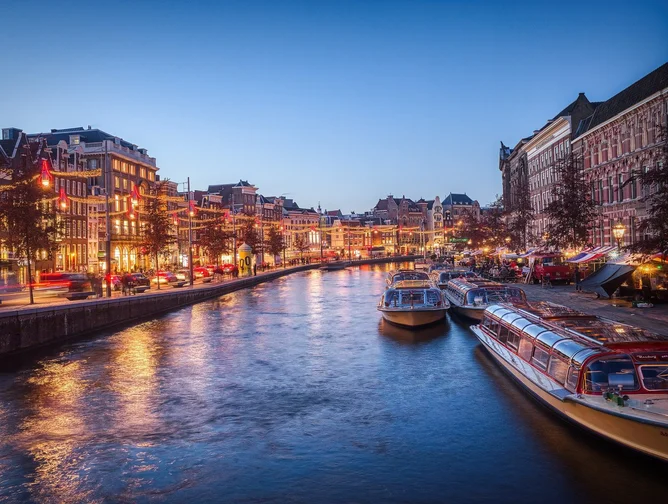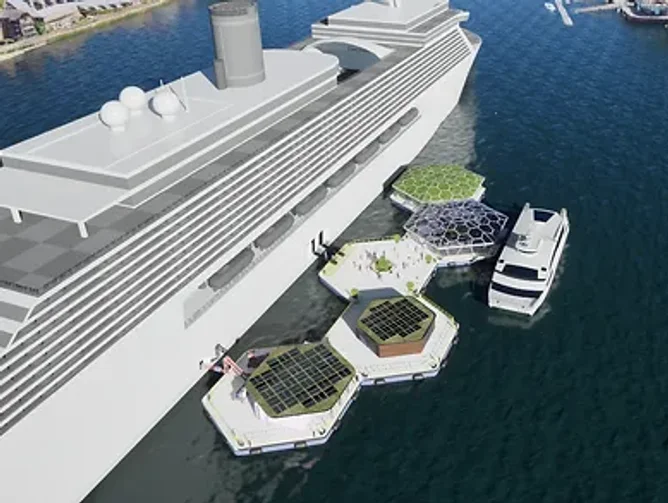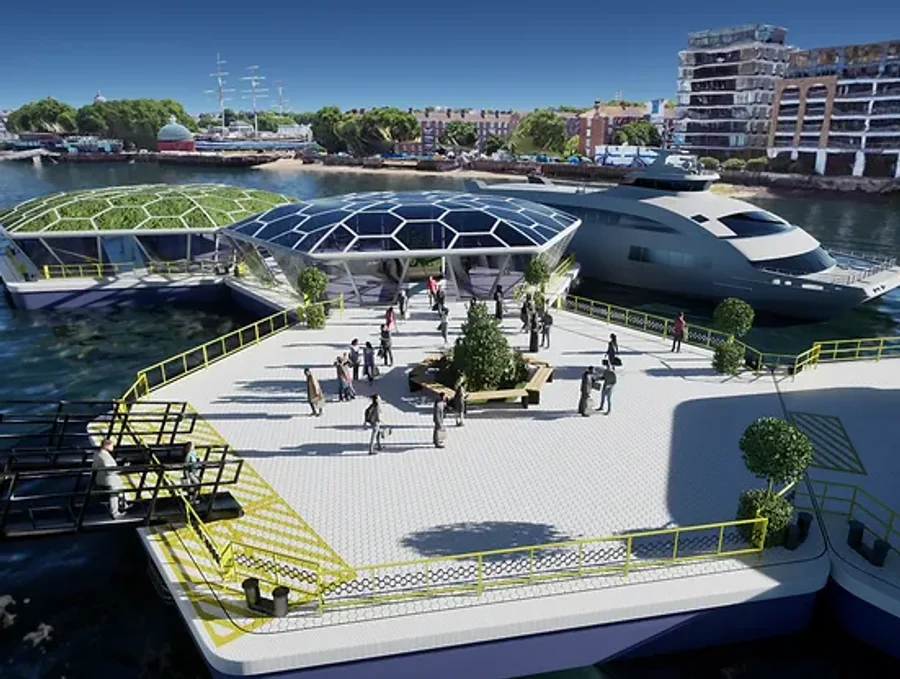Companies including Royal Caribbean Group and ELIRE Group are working to make cruises more sustainable with innovations such as floating infrastructure.
Cruise holidays offer a unique blend of relaxation, exploration and fine dining, all without leaving your floating hotel.
The Cruise Lines International Association forecasts an impressive 35.7 million global passengers in 2024 and the global cruise market is more than US$8bn.
Alongside its expansion, the cruise industry faces significant environmental challenges.
Cruise ships produce significant air pollution and have large carbon footprints, considerably surpassing those of flying or driving.
A medium-sized cruise ship can discharge upwards of 1 billion gallons of untreated sewage into the ocean, threatening delicate marine ecosystems like coral reefs with irreversible damage.
The industry is trying to pivot towards greener practices, facilitated by innovative collaborations and pioneering technology.
Jason Liberty, President and CEO at Royal Caribbean Group, says: “As a cruise company, we know we’re only as vibrant as both the destinations we visit and the oceans we sail. That’s why our strategies extend from our ships to our shoreside operations as well.
“From the tour operators we drive to pursue sustainability certifications to how we are intentionally diversifying our supplier base, with more local sourcing, we are focused on innovating across all aspects of our company, especially in our work to advance sustainability in the communities we visit.”
Amsterdam’s solution to cruising’s problems
In Amsterdam, the influx of 190 cruise ships per year brings a lot of tourists, but also poses serious environmental and residential challenges.
To combat this, the city has initiated plans to drastically reduce the number of cruise ships permitted to dock.

By 2026, the limit will be set at 100, with a complete ban on cruise docking in the city centre envisioned by 2035.
A new terminal, situated 16 miles away, will serve future cruise ships, which from 2027 must employ onshore power instead of traditional oil-fired generators.
Lubomila Jordanova, Founder and CEO of Plan A and Co-Founder of the Greentech Alliance, says: “Amsterdam’s proactive measures reflect a commitment to creating a more sustainable and liveable city by tackling the dual issues of overtourism and pollution head-on.”
How floating platforms could support sustainability
The concept of floating smart hubs presents a groundbreaking approach to enhancing cruise sustainability.
These floating infrastructures typically inflict minimal environmental harm compared to permanent port expansions, but current versions usually serve one purpose and are sunk after their useful life.

The floating infrastructure market, set to reach US$18.5bn by 2030, could serve various industries, improving operational sustainability across the board.
ELIRE Group’s hexagonal Smart Hubs can be assembled or dismantled as necessary and aim to support cruising to become more sustainable.
Luke Jenkinson, Founder & Group CEO at ELIRE Group, explains: “The innovative engineering behind our Smart Hubs, combined with the versatility of a unique multi-modal hexagon design, allows for endless configurations tailored to specific cases and locations.
“These range from large coastal wind farm assembly setups to smaller last-mile midstream river cargo configurations to reduce CO₂ emissions.
“We conducted a study in partnership with an independent decarbonisation consulting company MH Tech and discovered that a network of SmartHubs in ten small regions across the Mediterranean including Malta, a location known for its congested roads, could save the equivalent of 10 million tonnes of CO₂ over a 10 year period.
“In addition, it can take 30% of HGV vehicles off the roads by enabling logistics via electric waterborne transport.”
How Royal Caribbean Group is becoming more sustainable
Royal Caribbean Group has not only committed to stringent sustainability targets but is also pioneering extensive research and technologies to reduce environmental impact.
As of 2023, the company is more than halfway towards its 2025 carbon intensity reduction goals and has diverted 87% of its waste from landfills.
Nick Rose, Vice President, Head of ESG at Royal Caribbean, says: “I am proud of the continued effort Royal Caribbean Group has made to protect our beautiful oceans and find unique ways to reach our communities.”
oyal Caribbean Group has created the first at-sea waste-to-energy systems and started construction on its first methanol-capable ship.
The company is committed to net zero and has partnered with companies including Mærsk and the WWF to develop new technologies and solutions.



